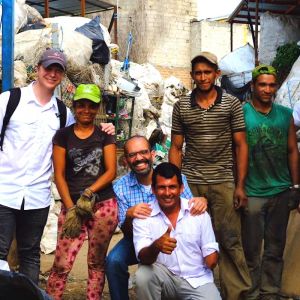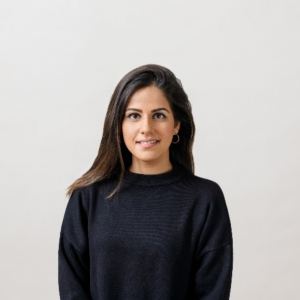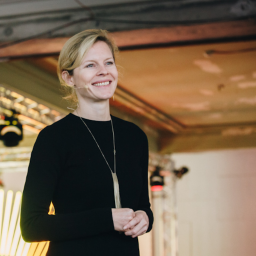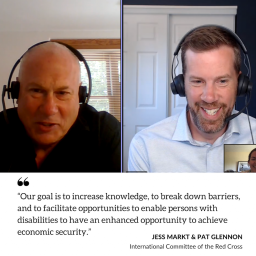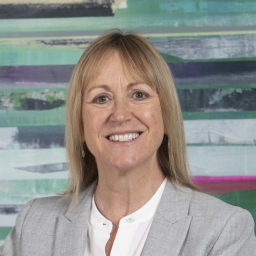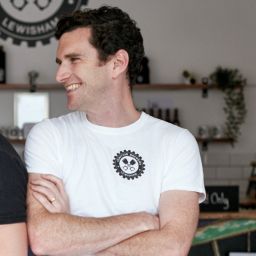How is social justice and the circular economy interconnected?
In broad terms, the circular economy seeks to make efficient use of natural resources, eliminate the generation of waste, keep the use of materials and products for longer, and dispose of them in a way that is not harmful to our health or the environment. Social justice is about ensuring every single member of society has the opportunities to lead a life of dignity and purpose regardless of their social, economic and cultural backgrounds.
The prevailing linear economic model is depleting our planet’s natural resources, contributing to massive biodiversity loss and widening economic disparities. These factors are driving many countries to experience increasing political instability and social unrest, jeopardising the full enjoyment of our human rights and fundamental freedoms, particularly of those already vulnerable.
What has been your experience in terms of the social impact a circular organisation can have throughout its stakeholder chain?
My understanding of the circular economy is that it is people-centred. It works to make our life cleaner, safer, more meaningful and enjoyable. It helps us to become more mindful of others and the environment and to be more empathetic.
It also promotes the creation of green jobs that do not use hazardous substances that pollute the air, lands, and rivers, which ultimately safeguards workers and citizens’ health.
If a company embraces the business opportunity and the fairness of adopting circular models, it is likely that they will apply this same lens to their entire stakeholder chain. A person who works for a company that applies circular principles will likely follow suit at home and in their community, multiplying the circular economy’s positive impact.
What can the circular economy do to support advances in health systems, wellbeing and human rights?
The circular economy is fuelled by renewable energies and designs waste out, which directly correlates to the enjoyment of physical and mental wellbeing, the preservation of functioning ecosystems, and the expansion of clean, safe, liveable cities.
The above is only an example of the interconnection of all these topics and why we insist we need to lean on a holistic approach. Silos will not take us far; collaboration will.
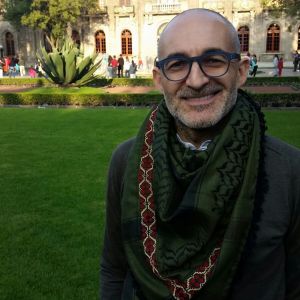
Fernando Lopez del Prado, Co-Founder, Sustaineers Consultants
How feasible is the opportunity for up-skilling and re-skilling, as well as job creation?
The circular economy brings the opportunity to throw old pre-conceptions and inefficient models out of the window. This could represent the eruption of new jobs where new systems, tools, skills, knowledge and collaborations would be required.
The concept of product as a service could be an excellent example of creating new functions that a linear economy would never have to consider. Renting, leasing or reselling products; repairing, upcycling, dismantling, and recycling items could open new avenues of career development and career transition, i.e. for those formerly employed in the extractive industries.
How can the circular economy help communities, not only businesses, to become more resilient?
One of the circular economy’s primary pillars is protecting and preserving the array of functions, roles, and benefits natural ecosystems provide to humans and animals. Namely: the provision of raw materials to feed the economy, fertile land to produce food and essential ingredients for medicines; the supply of clean water to drink and irrigate crops and fresh air to breathe; but also, beautiful landscapes and waterscapes to rest, spend our holidays and draw artistic inspiration from. Preserving our natural heritage for everyone to enjoy is another crucial aspect that is frequently overlooked.
Responsible consumption and advocating for responsible production (SDG #12) can help as well. We need to make sure our lifestyle does not harm the environment or undermine labour rights. I do not mean we all need to become Buddhists monks overnight and give up our comfort; I mean we need to be mindful of our everyday choices: only buy what we are going to eat, use leftovers, be careful with expiring dates, extend the use of our clothes and resell or donate what we no longer fancy, lease or buy good quality repurposed items (from household appliances to computers or office furniture), cut down our use of non-recyclable items and change our energy providers to green ones. There is an endless list of things we can do or imagine – creativity is on our side.
We need to overcome the prevailing ‘throw-away culture’ where we get rid of everything that no longer works. Instead, we could replace that little spare part to make it functioning again, repair the whole thing to give it a new life, or pass it on to someone else who can give it a new purpose.
___
TO JOIN THE ‘Regenerate’ COMMUNITY of leaders championing the circular economy globally, APPLY TO BECOME A MEMBER OF MEANINGFUL BUSINESS HERE


